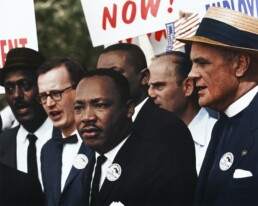Write Like The Economist
Why you should never sacrifice your brand, always write without pretension, edit until every word has its place, and commit yourself to serving your readers first.
News organizations have taken a beating over the years. According to the Bureau of Labor Statistics, the newspaper publishing industry cut over 50% of its staff from 412,000 in 2001 to 174,000 in 2016. One bright spot is that Internet publishing has helped those media companies willing to make the leap, with employment jumping from 67,000 jobs in the beginning of 2007 to 206,000 in September 2016.
But at LOQUATIO we are more concerned that the proliferation of “more” content has not necessarily translated to “better”. The term “fake news” has become a part of our collective vocabulary; and digital platforms are struggling to protect their audiences from misinformation. In fact, this reckoning has left us with at least one undeniable fact: your ability to create high-quality content matters more than ever. And while no single media brand holds the patent on quality, there are a host of nuggets content creators can unearth from the shards and rubble of the news industry.
The Economist
The Economist is a bit of a black box. There are no bylines. There are no celebrities, with perhaps the exception of a few noteworthy editors. The magazine (or “paper,” as it is called) eschews periods in prefixes (i.e., Mr, Ms, Dr, etc.) and has little use for the letter “z”. These quirks, notwithstanding, the paper is a global brand that continues to inspire respect and admiration.
There are already articles and blogs galore about its writing style. Here is one Quartz article about The Economist versus Bloomberg. Here is another link to The Economist style guide if you are so inclined.
Perhaps the occasional wry joke or witticism makes for an entertaining read. But most of the musings about The Economist’s style, in my humble opinion, miss something very important—namely, the esprit de corps that everyone at The Economist shares.
The brand bank
During my first month at the Economist Intelligence Unit working on thought leadership projects, we got an introductory lecture from Andrew Rashbass, then-publisher of The Economist. He would rhetorically ask, “If we think of The Economist brand as a bank, are we making deposits or withdrawals?”
At The Economist, you must be “brilliant”. And The Economist attracts brilliant people by the droves. The fact remains that no one can be brilliant every hour of every day. Still, you are keenly aware that what you do has a bearing on the brand. Legal, operations, IT, editorial, sales, and everyone else who works at The Economist understands they matter—and that they contribute to the success of the brand. To the chagrin of some of the sales team, we would turn away projects if they jeopardized brand integrity. (Buy me a drink one day and ask about Time Inc., on the other hand.)
Journalism versus analysis
There are countless ways to slice and dice the field of journalism. There is print journalism, investigative, broadcast, features, and the list goes on. However, as Anna Szterenfeld, a former editor at The Economist Group who specialized in business intelligence and risk for Latin America, reminded me: there is a difference between what The Economist does and pure journalism.
Anna rightly points out that The Economist does not specialize in breaking news stories. The Economist is more analytical. “You never insult the intelligence of the reader or dumb down information,” she says. “But you also want to ensure that readers clearly understand issues in a new way. It is a fine balance.”
My then-boss would often say, “If we are saying the same thing as everyone else, then we are not providing any value.” Does the world need another article about how the coronavirus emerged from China? Or perhaps an analysis of the economic impact of the virus is more fitting? Rather than printing a laundry list of the “who’s who” and “what’s what” from Davos, why not ask whether the World Economic Forum is even relevant today?
Editing to make every word count
Another way we aimed to create high-quality content was through relentless editing. I would occasionally gripe (in private, of course) that if an editor from The Economist got their hands on the Rev. Dr. Martin Luther King Jr.’s “I Have a Dream” speech, they would criticize it for being redundant for saying, “I have a dream,” too many times.
The editing process does, however, force you to ask the question: “Does each word matter?” Or as George Orwell wrote in “Politics and the English Language”:
“A scrupulous writer, in every sentence that he writes, will ask himself at least four questions, thus: What am I trying to say? What words will express it? What image or idiom will make it clearer? Is this image fresh enough to have an effect? And he will probably ask himself two more: Could I put it more shortly? Have I said anything that is avoidably ugly?”
Avoid pretension
If you have managed to read this far, then I have done my job.
Hopefully this serves as a reminder to everyone involved in creating content: You have an obligation to your audience—to inform, not impress. People should feel as though they know more about our world after reading your work. If they become impressed as well, let that be purely coincidental. In other words, to write like an editor from The Economist, never sacrifice your brand, write without pretension, edit until every word has its place, and commit yourself to serving your readers first…and your ego last.
Does AI in Thought Leadership Represent a Race to the Bottom?
April 25, 2024
I’m the first to admit that I don’t have the answers to all the mysteries of the universe. But when creating public-facing white papers, research, commentaries, and other forms of content, I definitely have some concerns.
0 Comments6 Minutes
Is Meritocracy a Myth?
November 14, 2023
The New York Times recently published an article, Stuyvesant High School Admitted 762 New Students. Only 7 Are Black.
0 Comments4 Minutes
Reflections on the Civil Rights Movements, Photos, and My Dad
September 24, 2022
When the Rev. Dr. Martin Luther King Jr. was assassinated, the African American community fell into a collective state of mourning - but not necessarily disbelief.
0 Comments2 Minutes






